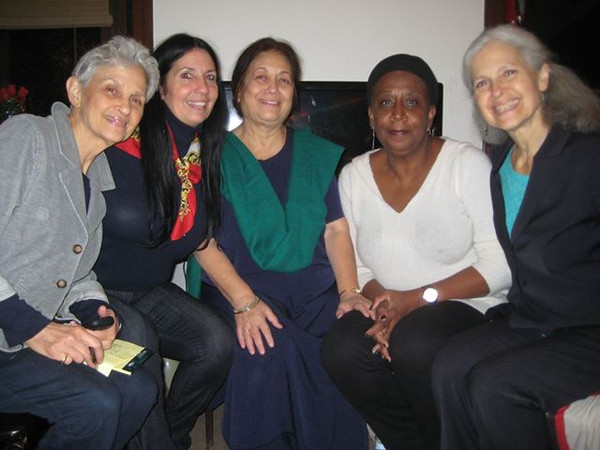
PHOTO/JASON BOSCH
Collective and community rights:
The People’s Tribune met with four leaders of the World Courts of Women in Philadelphia: World Courts of Women Founder Corinne Kumar, Poor People’s Economic Human Rights Campaign Director Cheri Honkala, University of Minnesota Professor Dr. Rose Brewer, and Green Party 2012 presidential candidate Dr. Jill Stein. The World Courts of Women are public hearings held in countries around the world to document the lives of women, their human rights, their visions, and their strategies.
People’s Tribune: What results do you expect to see from this session of the World Courts of Women?
Jill Stein: The Courts are happening at an historic moment. The predatory forces of global capitalism are tightening the noose around communities like Kensington. Poverty is becoming the “new normal”, not only here but across the country. Business as usual cannot get us out of this situation. 90% of the jobs created in the next decade will be low-wage and insecure, and the government is pushing austerity plans. The World Courts create a safe space for us to tell our stories. This is unifying and empowering, and more importantly, it is the beginning of courage and resistance.
Corinne Kumar: On the first day of the Courts, we experienced deeper empathy, solidarity, and weaving together of reason and compassion. The Court methodology is one of listening and receiving testimony with unconditional love, not debating it. No one walked in or out of the hearing room during the testimony. The tears and the trauma are a new source of other imaginaries, a new way of thinking. We are not talking about the politics of caring, we practice the politics of caring. This is visionary work.
Rose Brewer: It begins with the stories. Our entire population has been miseducated. We need to extend our outreach and political education, and the Courts are a profound entry point. They are the foundation of the respectful new political culture we seek. The stories themselves include the solutions: finding common cause through our organizations, collectivity, and connectivity. They extend our reach and subvert the negative ideology.
People’s Tribune: How do we carry this process forward?
Corinne Kumar: The next step is justice. Western discourse on rights dates from the Enlightenment and is based on rights of individuals. Individual rights are important, but we dare not stop there. We insist on collective and community rights, whether of the families of Bhopal or the homeless of Kensington. Union Carbide and the government of India sold out the residents of Bhopal by forcing them to file individual claims for compensation for the death and destruction. Of course they could not do that. Our movement is a movement for collective rights. We need to understand our relationality and the connectedness of issues.
Cheri Honkala: The lack of real culture and education is leaving our children defenseless. We have to protect them by helping them to become the best critical thinkers they can be. We cannot guarantee them their economic security, but we can pass on the ability to connect and be a part of a common movement for the future of humanity.

PHOTO/HARVEY FINKLE
Philadelphia World Courts of Women October 2013
Latest
The People’s Tribune opens its pages to voices of the movement for change. Our articles are written by individuals or organizations, along with our own reporting. Bylined articles reflect the views of the authors. Articles entitled “From the Editors” reflect the views of the editorial board. Please credit the source when sharing: peoplestribune.org. Please donate to help us keep bringing you voices of the movement for change. Click here. We’re all volunteer, no paid staff. The People’s Tribune is a 501C4 organization.

